It’s an all-too-familiar story: a DJ of any experience level with plenty of mixing skills, fancy DJ gear, and the latest killer tracks, but no gigs in sight. As DJing continues to grow in popularity around the world, gigs can be difficult to pick up. Today, Nick Minieri examines some of the most important pitfalls to avoid when trying to play out and offers concrete advice how to make sure you’re doing your best to get into DJ booths on a regular basis.
GIG-LESS FRUSTRATION
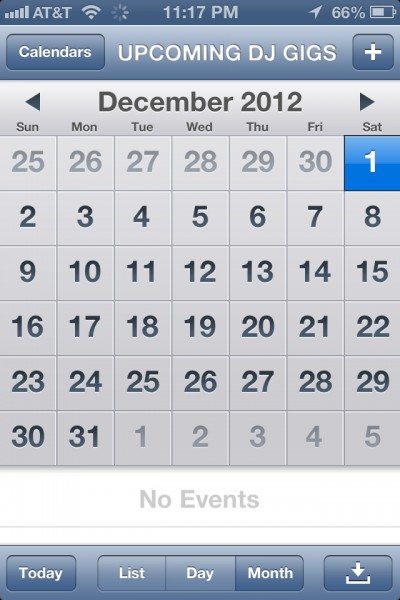
Every once in awhile I get emails from frustrated DJs who have tried it all: they bought equipment, spent thousands of dollars on music, practised for countless hours, and want to play out – but they’re just not getting gigs. I know exactly how this feels. I wish I could say getting booked is easy, but the harsh reality is that it simply isn’t. The market is flooded with DJs, all of who are as driven and dedicated to establishing themselves as you are.
It’s no secret we’re witnessing tectonic shifts both in dance music, as well the role of the DJ, in 2012. Before the Internet, DJs were coveted because they were the “gatekeeper” of the music. It was much more difficult and expensive to build a decent library in the 1980s and 90s. Their importance even became grossly overestimated by the rise of the “superstar DJ” persona at the turn of the century. The playing field has since been levelled, with fewer barriers to entry or “gatekeepers”. Everyone can become an “expert” on dance music nowadays…and as the famous saying goes:
When everyone is an expert, nobody is.
Similar to most other endeavours, who you know will get you much further than what you know. This was true 25 years ago, and it’s true today. I’m sure you’ve heard this a million times already, but the nightlife industry is all about connections. Skills get you nowhere if you don’t know people. Period.
This is not the type of article where I’m going to spew a bullshit 10-step list you can follow to put you on the road to fame, five-figure paydays, and the red carpet treatment. Dance music (EDM) might be in vogue again (especially here in USA), but the fact still remains that DJing is an activity that calls many, and chooses few. Fewer than 5% of DJs who start out will be able to make a living just from playing music that isn’t Top-40. Yet I’m willing to bet ALL of those “chosen few” aren’t making the mistakes I discuss below, especially during their formative years.
Think carefully to yourself if you are getting caught up in any of these traps as well; they could be the difference between routine bookings and complete obscurity. You’re not getting booked because:
1. YOU HAVEN’T DEFINED YOURSELF AS A DJ
Isn’t it pretty sad to think there are more DJs than ever, yet every time you go out they’re playing from the Beatport Top 100? It’s funny how when DJs had limited access to music 20 years ago, one would have a completely different set of tracks in his or her flight case than the next. Most everyone had the “anthems”, of course, but generally speaking, every set you would hear at a party would be unique.
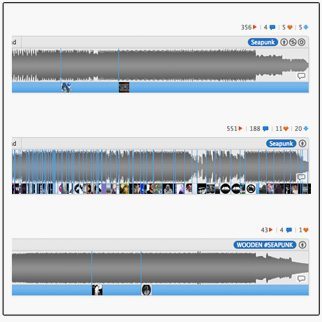
Now we have more access to music than most could have dreamed of in 1990. Yet it has encouraged many DJs to become lazy and just search the charts on sites like Beatport. Just because finding music is convenient nowadays doesn’t mean you shouldn’t take the time to still do some digging. Next time you’re on Beatport, why not click through the “New Releases” section (within the genre you play), instead of the Top 100?
Try doing some sifting through demos that suit your style next time you’re on Soundcloud. There is going to be plenty of junk, but when you stumble across that gem that almost no one has heard, the effort pays off. While you always have to cater to the crowd, you should still take risks and balance it with music they’ve never heard before.
Read more tips on finding great new music in this article from February 2012.
Ask yourself one question: Who are you as a DJ? This can be answered by identifying yourself through your music selection. There is software out there that can mix and key match for you, but no machine will be able to SELECT your music the way you can. It’s still the one way you can separate yourself from the rest of the pack. You aren’t giving promoters any reason to book you if all you do is rally behind the anthems everyone else hammers. There are countless other DJs who can do the exact same thing….let alone a jukebox which doesn’t require a rider and a paycheck. Do you want to be a clone or do you want to stand out? Define yourself.
2. YOU’RE NOT PRACTICING ON A REGULAR BASIS

A couple years ago, DJ Z-Trip put it rather succinctly in one of his tweets:
“If you don’t practice, you don’t want it.”
Practicing means a number of things. It means taking the time, every day, to search for unique music, and building an encyclopedia-like knowledge of it. It means organizing your digital collection by key & BPM tagging, adding cue points & metadata, and more. It means knowing every song in your library inside and out. Figuring out which tracks go best together, where the build-ups and break-downs are, when to mix in and out, and on which occasions it is most appropriate to play each one. What good are 25,000 tracks on a hard drive if you only know a couple dozen?
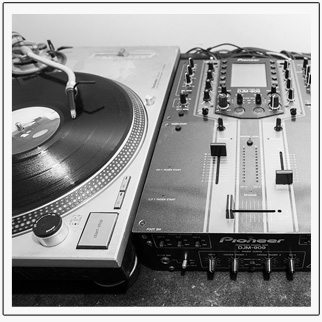
DJs who don’t practice struggle to build a cohesive set that organically evolves in response to what the dancefloor is doing. For every Danny Howells, there are thousands of DJs who haphazardly chuck songs on that don’t fit together, or even worse, pre-plan entire sets without taking any cues from the crowd. There’s nothing wrong with plotting out chunks of two or three songs at a time that work great together, but you can’t interact with the crowd properly if your full set is pre-planned. This wouldn’t be a problem if you knew all your tracks inside and out in the first place. Malcolm Gladwell’s infamous 10,000-hour rule makes no exceptions for DJs.
More importantly, practicing is the only way you will truly define yourself. It’s quite uncommon to become successful just from DJ’ing, but the ones who do have generally added a different or unusual twist to the craft. Sasha and Richie Hawtin were two of the first DJs to utilize Ableton as a performance tool, back when very few people knew the software even existed. Jeff Mills and Andy C became renowned as DJs who could fluidly mix more than just two songs playing simultaneously using three or even four decks. Madeon and AraabMUZIK are currently pushing things forward using MIDI controllers and Akai MPCs to smash existing songs apart and play them back in completely different ways, all live.
In all these cases, thousands of DJs have tried imitating their styles, many rather successfully. But this is tantamount to the thousands of guitarists who can play like Jimi Hendrix. Hendrix obviously made a name for himself by being one of the first to push the newly invented electric guitar to the max with his rapid-fire licks and groundbreaking use of distortion and overdrive. But by playing just like him 45 years later, you aren’t creating anything new, you’re merely repeating something that already happened. And just because you are really good at mixing doesn’t mean you are going to be the next James Zabiela, either. Think of how you can approach the craft of mixing songs in new and different ways, and this will surely help you take more creative ownership in what you are trying to do. This vision only becomes a reality after years of practice.
Watch the Invisibl Skratch Piklz give tips on how they practice.
3. NOT SUPPORTING EVENTS YOU SOMEDAY HOPE TO PLAY AT
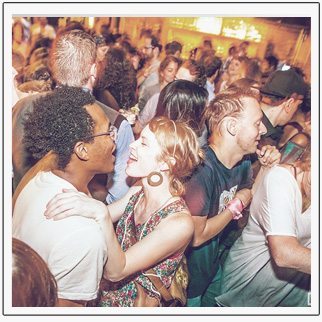
This one should be obvious: if you’re not already well known as a DJ locally, don’t even consider asking a promoter to play at their event unless you’ve checked it out a couple times. Successful local events target specific music styles. They attract people who know exactly what to expect when they stop by after a long stressful day at the office. You really won’t know whether the genre you currently play will fit the theme of the night until you check it out a few times. You wouldn’t apply to become a creative director at an ad agency if you had a background in finance, would you? Nor would you want to ask the promoter of a deep house night at an upscale lounge if you could get on at an upcoming show if you play flashy saw-wave electro.
It’s understandable that getting out to every party seven nights a week isn’t going to happen. You’re an adult and you have responsibilities….trust me, I get it. Promoters will notice and appreciate your support, even if it’s only once a month. Especially if it’s on a night when a headliner isn’t booked. If you have a chance to introduce yourself to a promoter, don’t open the conversation by telling them you want to play their night; just talk with them about music, the scene, or other stuff (like TV shows, sports, whatever). Don’t be shy; in fact, if you are, you’re probably in the wrong business altogether. Remember, DJ gigs are about who you know, not what you know.
At the end of the conversation, hand the promoter a business card with all your contact information. Don’t bother giving them a physical CD at their events, they’re busy and it will get lost in the shuffle. Then follow up online (see below!).
4. YOU’RE AFRAID OF THE WORD “NO”

If you don’t already have a name for yourself, get ready to hear the word “NO”. A LOT. You may think you can rock a party, but most promoters have a very long list of well-qualified DJs, many of whom have spent years building working relationships with them, to tap into for playing their events. At the large-scale ones, every single one of them will bend over backwards just to play a half-hour soundcheck timeslot at 8pm. For free.
Similar to searching for a job, opportunities aren’t just going to find you. You’ve got to go out there and pay your dues first. Talk with promoters on Facebook who throw events that are based around the kind of music you play. Let them know you exist, what you play, comment on some of the events they’ve thrown, and describe to them why you think you are a good fit to play their show. Think of what YOU can do for THEM. Essentially this is a cover letter. Copy-paste generalized messages aren’t going to cut it. Limit your introduction to a single paragraph (promoters are busy, remember) and close with a link to your website and Soundcloud account. You have both of those, right?
Following this, consider every response you get a pleasant surprise, because they’ll be few and far between. You have to be persistent, which means you have to be persistent in handling rejection. Promoters get countless emails from DJs wanting to play for them. If you aren’t playing out frequently, you are going to be more of a liability than an asset as you haven’t proven yourself. There is no way in hell they’re going to let you go behind the decks to command a packed dancefloor with their reputation on the line unless they’re convinced you know what you’re doing. Plain and simple.
But remember: if you don’t ask the promoter if you can play, the answer will ALWAYS be “NO”. Promoters don’t have time to research every single DJ in your city, so you need to make yourself visible to them. And if you’re afraid to sell yourself, I’m willing to bet you lack the confidence in your ability as a DJ to justify the self-promotion you need to be doing. Back to the studio to keep practising until you’re 100% confident you’re ready for the prime time.
5. YOU’RE NOT SEEKING FEEDBACK FROM STRANGERS
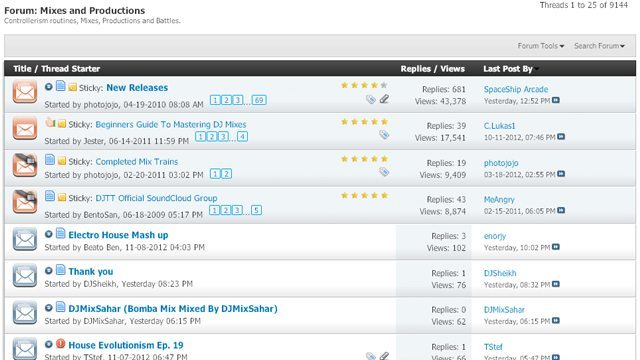
You need to be soliciting feedback on your mixes from people you don’t already know. Sorry, but your friends and family are biased. Anything you do is going to be “amazing” to them. Spread your mixes beyond your inner circle. Start by posting links to them (with a track list) on communities frequented by ruthless seasoned listeners who have no clue who you are. Send them to veteran DJs in your town who have been spinning for longer than you’ve been alive, and see if they can give you some constructive feedback. I know that music is subjective and you’ll occasionally have to deal with harsh comments and trolls, but spreading your mixes outside your comfort zone is the best way to get honest feedback. Assume ZERO responses means your mix got lost in the shuffle because it failed to impress, had a predictable tracklist, or a non-descriptive thread title (if posted on a forum). Time to move on and get back to work.
A lot of artists fail because they allow the positive feedback from their friends and family to go straight to their head, causing them to become arrogant, or even worse, complacent. There’s not a single DJ under the sun who hasn’t had friends tell them how amazing they are behind the decks. At the end of the day, none of us are curing cancer with a MacBook and Serato box, so it’s in your best interest to just be humble.
Another mixtape tip: the only thing “studio” mixes prove nowadays is what your current taste in music is. They do not show how well you can read the crowd, mix without the luxury of being able to edit afterwards, and deal with technical difficulties at events (which happen FAR more often than you think). Mixes still help get your name out there, but don’t think that a promoter will be convinced in your ability to DJ just because they’re good. Showing them you can play a great set live carries far more value.
6. YOU’RE TRYING TO GET FOLLOWERS INSTEAD OF FANS
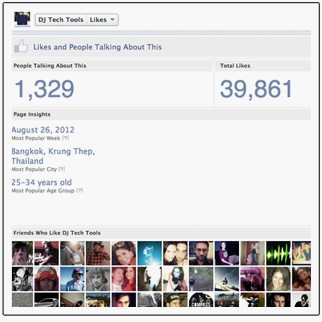
Social media is the biggest change in dynamics to take place on the Internet since the birth of the World Wide Web itself. What’s awesome about places like Facebook, Twitter, Tumblr, and Soundcloud is they have enabled major artists to engage more closely with fans. They’re no longer high up in an ivory tower. Fans are curious and want to know what sort of debauchery their favorite producers and DJs are up to.
As for you…I hate to say it, but you’re probably not living quite as interesting a life as, say, Diplo. People aren’t going to flock right over to your Instagram feed or Facebook wall to read every mundane detail of your life. A drawback to social media is we’ve all become narcissists to a degree, myself no exception. We’re obsessed with trivial things like how many followers we have and how many people “like” our status updates. Everyone wants to build a following. But doing such can take years, and you need to be adding value in a way that justifies your audience having your content in their daily Internet lives.
Want to know a surefire way to NOT get followers? Treat them as followers, instead of fans. Posting only generalized information about your DJing, the events you’re involved with, and the obligatory what-I’m-eating-for-lunch status, are surefire ways to get ignored. You look like an advertisement. Add to the signal instead of the noise. Post other artists’ work you admire, post open-ended statuses that spark conversations with other like-minded people, thank the people who came out to your last gig, and carve out a unique persona for yourself. It’s okay to use Facebook and Twitter to let people know about your shows and mixes, but don’t be that guy who has nothing else to add to the conversation. Stop worrying about the “likes” and the follow count. What’s the point of having 10,000 followers if only a few are engaging with you? Worry about the 500 fans you have right now, not the 10,000 followers you wish you had.

Oh yeah, DEFINITELY don’t be “that guy” who stops at nothing to post your mixes everywhere: on the Facebook walls of people you don’t know, on Facebook event pages you’re not involved with in any way, as a status update several times a day, and on other people’s tracks on Soundcloud. Ever notice how these are the people who NEVER get booked to play anywhere, ever? They almost make those pop-up adds for Viagra seem tame in comparison.
Remember that everyone sucked not only as a DJ, but also at building a following, when they started out. There’s nothing to be ashamed of by not having a large fanbase during your formative years. Find your rhythm when it comes to promoting yourself online without being invasive or desperate. At the end of the day, the mixes and the music do the talking, followed by your fans if you’re a class act about it.
Read more tips how to build a DJ web presence in this June 2012 article!
7. YOU AREN’T THROWING PARTIES OR PRODUCING MUSIC
Ever noticed how the non-headlining lineups of most parties are comprised of DJs who are also promoters? This is no coincidence. Whether or not promoters will admit it to you, booking swaps are the norm. In case you’re new to the scene, a swap is when a promoter (who also happens to be a DJ) invites a DJ (who also happens to be a promoter) to play his/her event. The first promoter/DJ hopes the second one will return the favor. Generally, they will. It’s unfortunate when the requirement to getting gigs is the ability to create them for other people (rather than on the skill of DJing itself), but similar to other saturated markets, it’s the reality. And it sucks.
Starting a night of your own doesn’t have to be a major commitment, however. The thing I recommend doing is to approach a bar or smaller venue that is struggling. Let them know who you are, the kind of event you wish to create, what your goals are, who the target market is, and how you will help get those heads through the door. You may consider starting it up as a monthly first, and joining forces with one or two other like-minded people to make it happen. Don’t bother with headliners early on, just focus on spreading the word of the night around town and figuring out how to make the experience unique. DON’T book promoters in the hopes of them returning the favor. Instead, book yourselves and the people you believe in.
Now if you’re trying to start this night to make money, do yourself a favor and go find a job in finance or healthcare. Chasing paper is going to be the LEAST of your worries. Here’s the real payment: real-world experience DJing in a club, in front of other people, outside your house. Like I said earlier, this is where you will truly cut your teeth in this craft. It’s where you will prove to your colleagues you’re really good at this. It’s where you will convince promoters who happen to check your night out to give you a shot. Finally, it’s where the doors will start to open.
 Of course, there is a second way you can score loads of gigs if you don’t want to take the promoter route: become a producer. This is NOT a path you will want to tread lightly on, as the number of people making original music has exploded over the past decade. Producing requires music theory, which will take YEARS of time to master. It’s way more complex than just “knowing the software”. It will require the strictest of discipline to wait until your ideas are fully baked before sharing them with others. Want to get booked in a different city or country without production credentials? Sorry, it’s probably not happening.
Of course, there is a second way you can score loads of gigs if you don’t want to take the promoter route: become a producer. This is NOT a path you will want to tread lightly on, as the number of people making original music has exploded over the past decade. Producing requires music theory, which will take YEARS of time to master. It’s way more complex than just “knowing the software”. It will require the strictest of discipline to wait until your ideas are fully baked before sharing them with others. Want to get booked in a different city or country without production credentials? Sorry, it’s probably not happening.
The only people who succeed as producers are the ones who are bringing unique and distinct sounds to the table. You know all those generic-sounding tracks you quickly flip through while surfing Beatport? Don’t contribute to that waste pile. Have a vision for how you want to take your work in a different direction than everyone else. Again, this is similar to all the failed guitar players who wanted to sound like Jimi Hendrix. Your original productions will also need to be polished and have that “wow” factor that instantly makes other producers go “why the hell didn’t I think of that?” Remember that the best producers spawn countless imitators, all of whom get instantly lost in the shuffle.
8. You think of DJing as a hobby
 Nowadays, judging a DJs mixing skills is like judging a hockey player’s ability to ice skate. Everyone who plays hockey can ice skate, much like everyone who DJs can mix. But if you can’t play the game you will end up on the bench, regardless of how well you can skate. That would make you an enthusiast, not a player.
Nowadays, judging a DJs mixing skills is like judging a hockey player’s ability to ice skate. Everyone who plays hockey can ice skate, much like everyone who DJs can mix. But if you can’t play the game you will end up on the bench, regardless of how well you can skate. That would make you an enthusiast, not a player.
How does a hockey player avoid being an enthusiast? Focus. Determination. The will to give up most of your free time for it. The players at the top of the totem pole don’t view hockey as a hobby, to them it’s a lifestyle. It’s ALL they know. It’s what they hope to make a career out of (well at least until they get injured). They’re in it to win. You need that level of drive in order to be a “player” in DJing, too. Enthusiasts play in their bedroom. Players play in clubs. Other DJs should have to run to keep up with you.
Other competitive fields in the art and entertainment industry, such as photography, are no different. I don’t know a single photographer working full-time as one who does not eat, sleep, breathe, and shit photography, 24-7. Not one. Photography auteurs Ansel Adams and Richard Avedon never took vacation days. Photography was part of their DNA, much like DJing needs to be part of yours if you hope to get paid money doing it.
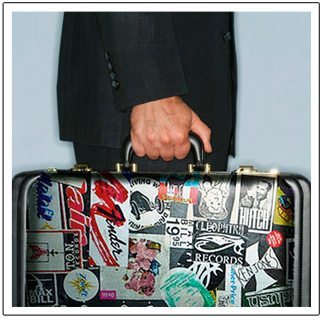 Now I know what you’re thinking: “I’ve got a full-time job” or “I’ve got a family to support”. Well, this is where you need to do some serious soul-searching. You can do the DJ/Produce/Promote thing, you can work full-time, or you can have quality time to spend with your family. But you can’t have all three. It’s tough enough even managing two. Look at any of producer/DJs from your hometown who have “made it”. Try to count how many of them work 9-to-5’s on top of the whole EDM thing, including those years when they weren’t quite there yet. Go ahead, I’ll wait. There’s NOT many. Every single one I personally knew threw parties, played parties, clocked 60-80 hours a week in the studio, and still had time to support other local events during the early years.
Now I know what you’re thinking: “I’ve got a full-time job” or “I’ve got a family to support”. Well, this is where you need to do some serious soul-searching. You can do the DJ/Produce/Promote thing, you can work full-time, or you can have quality time to spend with your family. But you can’t have all three. It’s tough enough even managing two. Look at any of producer/DJs from your hometown who have “made it”. Try to count how many of them work 9-to-5’s on top of the whole EDM thing, including those years when they weren’t quite there yet. Go ahead, I’ll wait. There’s NOT many. Every single one I personally knew threw parties, played parties, clocked 60-80 hours a week in the studio, and still had time to support other local events during the early years.
If you decide to leave your day job to focus on DJing, promoting, and producing full time, you’re putting your entire livelihood on the line. But ask anyone who has started their own business what their early years were like, and you’ll realize your situation is not unlike theirs. Make sure you’ve got at least 6-9 months worth of savings tucked away because times will be tough early on. But you’ll learn and grow from these struggles, plus you’ll be more driven to succeed than the people with the safety nets of a full-time desk job beneath them. People may call you crazy, but you have to go out there and prove them wrong. Like the hockey player, you’re here to win. I hope your friends and family will support your decision.
I want to end this with the fact that there’s absolutely nothing wrong with playing it safe by taking a different career path you still enjoy. You can still be an enthusiast DJ. You just need to manage your expectations different as there won’t be nearly as many booking opportunities available to you. Interestingly enough, several of my co-workers play hockey in an adult league every Friday during the winter. They don’t play in front of crowds, but they still love the game, and it sure as hell beats going home and watching the idiot box for a few extra hours. DJing may be expensive and time-consuming, but as with most hobbies, is an awesome way to enhance your life and meet people from it. If those simple pleasures are in line with the goals you hope to achieve with it, more power to you!
A FEW ADDITIONAL TIPS FOR SUCCESS
- If you don’t already have them, you need to sign up for Soundcloud and Mixcloud accounts. Today. These are amongst the best resources at your disposal for getting your mixes out there. If you need some pointers on how to promote yourself on Soundcloud, read this article. But remember: don’t just worry about the followers. Build a FANBASE.
- Gear is irrelevant. Your skills as a DJ come down to your ability to work with what you have, which songs you play, and how to read a crowd. Not whether or not you are using CDs, vinyl, Ableton, Traktor, MIDI controllers, ZIP disks, or whatever. New gear is being released these days at mind-numbing speeds, and it’s easy to fall into the marketing trap of absolutely “having to have” that new controller or software update. Just stick to what you’re most comfortable with. If you have to purchase something, have a clearly justified reason for doing so. You’re probably spending enough money on music as it is.
- Support others even if they couldn’t give two shits about you. If you think people are preventing you from succeeding, kill them with kindness.
- Don’t forget to support the talent of other like-minded producers who live in your backyard. As long as their music fits your style, you should be including their tracks in your sets. This is another great way to get support from some of the key influencers in your local scene.
- Share your mixing with the world by playing online radio shows. While they won’t prove your skill set to promoters the same way a live set will, radio shows are great ways to practice in the comfort of your home while other people are listening.
- Be patient. VERY patient. Overnight success as a DJ is almost unheard of these days.
Editor’s Note: This article is the full version of a piece that Nick originally published over on his blog, Beantown Boogie Down, covering the Boston-area dance music scene – check out more of his great writing here!







